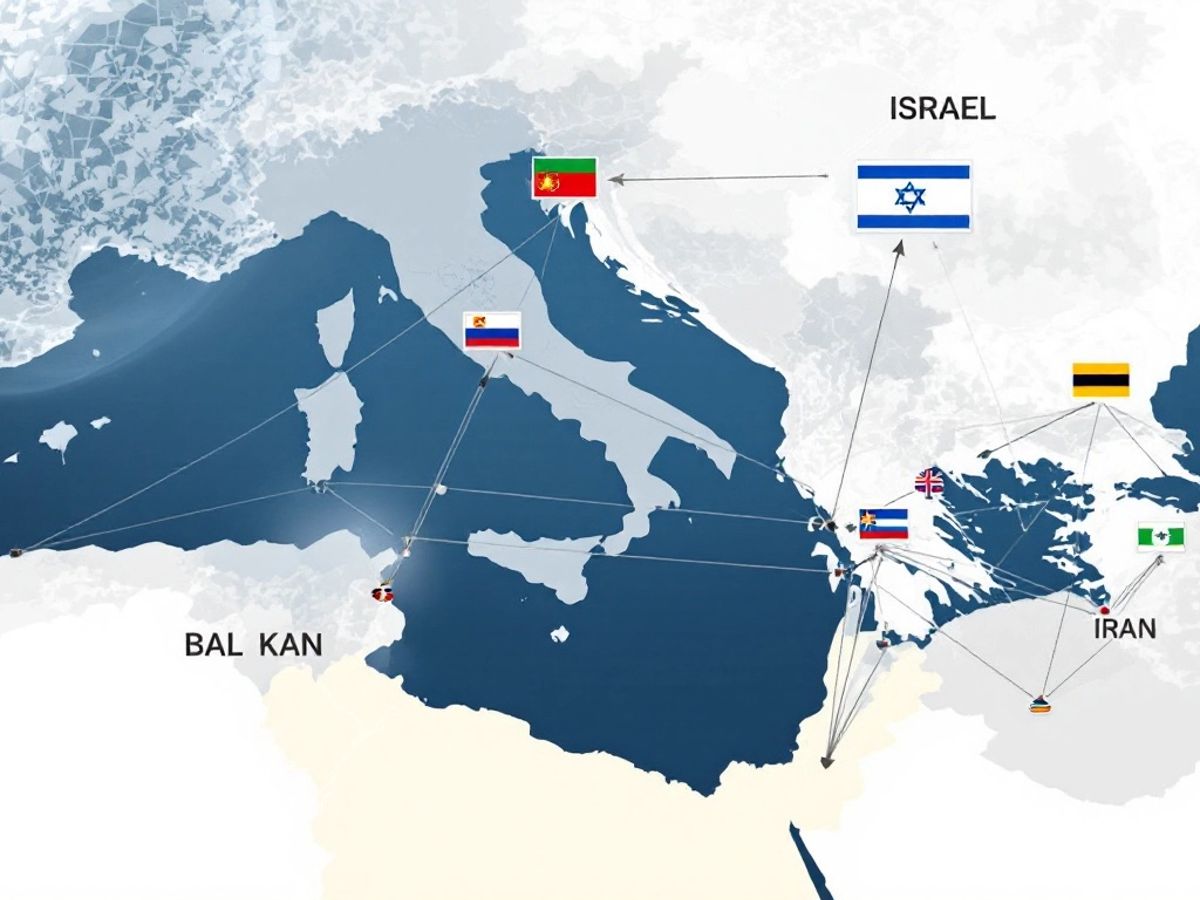Israel is strategically enhancing its relationships with Balkan nations to counter Iranian influence amid escalating regional tensions. This move comes as Israel faces international scrutiny over its military actions and seeks new alliances to bolster its position against Iran.
Key Takeaways
- Israel is rekindling ties with Balkan countries to isolate Iran.
- The initiative follows a series of military campaigns against Hamas and Hezbollah.
- Albania and Serbia are key partners in this strategic alliance.
Strategic Alliances Amid Regional Tensions
In a significant diplomatic push, Israeli President Isaac Herzog recently visited the Balkans, aiming to deepen bilateral cooperation with countries like Serbia and Albania. This initiative is seen as a response to the growing threat from Iran, particularly following Iran’s recent missile attacks on Tel Aviv.
The backdrop of this diplomatic engagement is Israel’s ongoing military campaign against Hamas and Hezbollah, which has drawn criticism from various international quarters. Observers note that Israel’s outreach to the Balkans is a calculated effort to capitalize on the diminishing Iranian influence in the region, especially in countries like Bosnia and Herzegovina and Kosovo.
Historical Context and Current Dynamics
Historically, Iran has supported Bosnia and Kosovo against Serbia during the 1990-1991 war. However, recent developments indicate a shift in allegiances. For instance, Albania is now hosting the Mujahedeen e-Khalq, a group opposing the Iranian regime, while Bosnia has increasingly distanced itself from Iran, voting against UN resolutions condemning Israel.
Economic and Military Cooperation
Israel’s ties with the Balkans are not merely political; they also encompass economic and military dimensions. The Israeli government has been actively fostering trade and security relations with several Balkan nations, including:
- Serbia: Notable for its arms exports to Israel, with recent shipments valued at €23 million.
- Albania: A crucial source of fuel oil for Israel.
- Kosovo and North Macedonia: Engaging in defense and technology collaborations.
This military cooperation is particularly significant given the international calls for arms embargoes against Israel due to its actions in Gaza. Despite these pressures, Israel continues to seek partnerships that enhance its military capabilities.
The Role of International Relations
The current geopolitical landscape has prompted Israel to look towards the Balkans as a strategic ally. The region has become a political backer for Israel, especially against efforts in the UN aimed at reviving the two-state solution. Researchers suggest that Israel’s growing ties with these countries are a response to its increasing isolation due to its military actions.
Future Implications
As Israel continues to navigate its complex relationships in the region, experts believe that maintaining strong ties with the Balkans will be crucial. This alliance not only provides Israel with a buffer against Iranian influence but also offers a platform for military and economic collaboration that could prove vital in the face of ongoing regional conflicts.
In conclusion, Israel’s renewed focus on the Balkans reflects a strategic maneuver to bolster its position against Iran while navigating the challenges posed by international scrutiny and regional instability. The implications of these alliances will likely unfold in the coming months as tensions in the region continue to escalate.
Sources
- Israel extends ties with the Balkans to isolate Iran, The New Arab.






